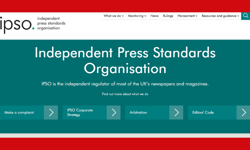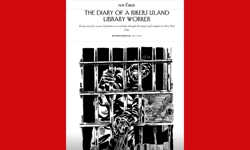After detailed and thorough consideration by the Commission, the complaint was not upheld. The Commission could, however, fully understand why the complainant - and indeed the 25,000 people who also complained to the PCC - were upset by the article. At the heart of the story was the tragic death of a young man which had affected a large number of people, and the Commission considered that the newspaper had to accept responsibility for the distress it had caused. It welcomed the columnist's apology to the family for the ill-timed nature of the article, which was the right response on her part.
However, the Commission also had to consider the complaint in the wider context of press freedom - a fundamental component of a working democracy. The complaint raised an essential point of principle for the Commission: the extent to which a newspaper has the right to publish opinions that many readers may find unpalatable and offensive. In its ruling, the Commission said:
"As a general point, the Commission considered that it should be slow to prevent columnists from expressing their views, however controversial they may be. The price of freedom of expression is that commentators and columnists say things with which other people may not agree, may find offensive or may consider to be inappropriate. Robust opinion sparks vigorous debate; it can anger and upset. This is not of itself a bad thing. Argument and debate are working parts of an active society and should not be constrained unnecessarily (within the boundaries of the Code and the law)".
PCC Director Stephen Abell (pictured) commented: "This was a difficult but important case for the Commission to deal with. The article clearly caused distress to Mr Cowles, as well as many others, and this was regrettable. It was right that those concerned about the article should be able to register their anger in a variety of ways: by writing to the newspaper, by communicating on the internet and by complaining to the PCC. The fact that there were so many forums for challenging Ms Moir's view is evidence of a strong culture of public debate and accountability. In the end, the Commission, while not shying away from recognising the flaws in the article, has judged that it would not be proportionate to rule against the columnist's right to offer freely-expressed views about something that was the focus of public attention".
To read the adjudication, which sets out the Commission's ruling in full under each of the three relevant parts of the Code - Clause 1 (Accuracy); Clause 5 (Intrusion into grief or shock); and Clause 12 (Discrimination) - please click here.
Background Notes
1. The Press Complaints Commission is an independent self-regulatory body which deals with complaints about the editorial content of newspapers and magazines, and their websites.
2. The PCC upholds a Code of Practice. The Code is written and published by the Editors' Code of Practice Committee which is a separate body to the PCC. The Editors' Code of Practice Committee has no say in the day-to-day running or decision-making of the PCC, and membership of the Committee does not overlap with that of the Press Complaints Commission.
3. The Commission consists of 17 members. 10 of these - including the Chairman- are public members and have no connection to the industry. There is a full list here.
4. Peter Wright, the editor of the Mail on Sunday, is a member of the Commission. He took no part in the PCC's deliberations in this complaint, and left the room when it was discussed. He did not see any correspondence connected to the case. This is in line with the PCC's normal procedures when a title edited by a Commission member is subject to a PCC complaint.
5. The PCC does a significant amount of work in the area of bereavement support for members of the public. It is in regular contact with Coroners, police family liaison officers and bereavement support organisations to explain its services.










